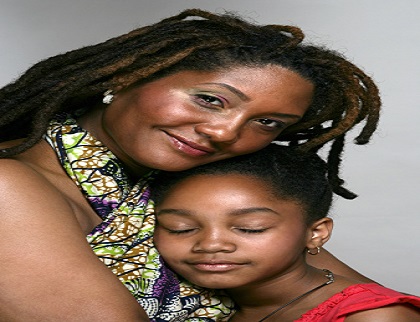Puberty is a stage of life children will hit. What do you do when your daughter starts her period? You have to be available to educate her and take her through this change in her life and body.
Some girls start periods very young, even as young as 8. A young girl who just started menstruating will be dealing with a lot of emotions, changes to her body and might also feel overwhelmed. It can be tougher because the parents, especially mum might not be ready for this change.
The way parents prepare children for this stage will determine if the child is armed with the right knowledge about the changes she is going through.
Parents guide to handling periods.
- Fact of Life – Let her know that her body is doing exactly what it is meant to do; having periods is a sign of normal development. Mum or an older female should share her experiences of when she started her period to help demystify it.
- Hygiene – Proper hygiene is important and includes changing pads frequently, every 2 to 4 hours. Proper soaking and washing of her underwear thoroughly is a must. She should take a change of underwear to school.
- Frequent washing – In addition to morning showers, she should wash; after returning home from school, after being in the sun or at bedtime. It is also advisable she washes her underarms because with puberty might come the need for under-arm deodorants. There are some gentle options like dove deodorant. She might want to use a soap like dettol active.
- Sanitary Products – It is advisable to use super absorbent pads to ensure that she stays dry. Tampons are better introduced when she is older. Using of tampons can be uncomfortable for a young child whose hymen is still intact. She also faces breaking the hymen.
- At bedtime she should wear thicker pads which will absorb better overnight and reduce staining.
- Infections – Tampons are not advisable for young girls. They might forget to change it regularly and this can cause infections.
- Tampons pose the risk of TSS; toxic shock syndrome which is a serious bacterial infection from leaving a tampon in for too long.
- Sex Education – This is definitely the time to have the sex talk if it had not happened previously, she needs to understand what can happen if she has sex at this time. Be honest – do not tell her that if boys look at her she will get pregnant.
- Dealing with odour – She should understand that there is a different odour during periods and this might be responsible for the smell some complain about. Changing pads often will help as stale blood has an odour.
- Reducing Symptoms – During her period she should limit chocolate intake and avoid sugary food. Knowing her cycle would help, if regular it is easier to prepare ahead and start taking pain killers from a day before the period is expected.
- For cramps – Pain killers such as panadol or ibuprofen can help. Another alternative is to use a hot water bottle on her lower belly.
- Underwear – during her periods underwear should be firm with full covering to prevent leaks. She should be taught how to properly apply the pads to stick/attach to her underwear so it stays in place (e.g. pads with wings)
- Communication – needs to improve between mum and daughter, they should track her cycle together so they know when its coming. Mum needs to show her how to clean herself properly. She should not feel conscious nor let her self-esteem suffer.

- Medically – it is possible that at this early stage her period might not be regular and might be caught unawares when it re-appears. She needs to know this and have her sanitary pack handy – e.g. in her school bag at all times. It would be important to talk about the tell tale signs of the onset of menstruation e.g. tummy cramps, breaking out etc.
- Paediatrician – Lastly a visit to the paediatrician is always helpful, as he or she can talk to her as well. In addition the paediatrician might want to check hormone levels in situations where onset of the period is very early.
Get her some books to read about Growing up and puberty – Some options are Growing Up: It’s a Girl Thing by Mavis Jukes
Parents might be uncomfortable or emotionally unprepared to deal with the fact that their daughter is no more a baby, but remember that your daughter is the one going through the changes and needs you to be there for her. Together you can help her see it as a normal transition and part of life.
Puberty is a time of great change for your child – and for you as a parent too. You can help your child by arming yourself with information, being reassuring, and teaching them to live a healthy lifestyle. Additionally, you need to respect your child ‘s need for more privacy.
Puberty and adolescence is a time for children to become more independent, but they still need your support. If your child is early or late to puberty, be understanding and offer lots of reassurance and support.




